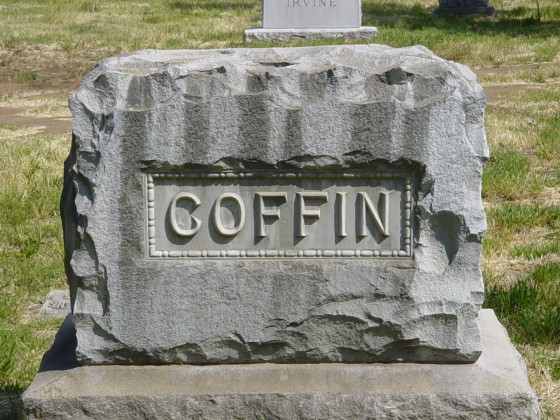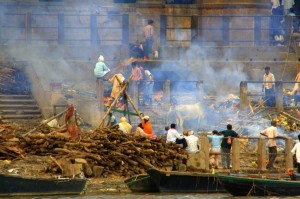TRADITION: Ashes to ashes, bucks to bucks
Posted on January 14, 2013 By Jeremy Loome Culture, culture, Front Slider, life, News, The Latest
The days of the family crypt and side-by-side plots may soon be a thing of the past: cremation now dominates burial statistically in Canada, say funeral experts, a complete reversal from two decades ago, when the practice was still frowned upon by many faiths.
“Edmonton’s rate is about 70% cremation now and Vancouver Island’s is as high as 90%,” said Rod Attwell, a funeral director with St. Albert’s Connelly-McKinley Funeral Home.
Attwell attributes the decision to cultural changes. “There was a lot more perceived value in the ‘60s, ‘70s and ‘80s when there were a lot more church people. Also, we have a lot more of a transient population now, and people aren’t as often near family.”
Surveys by the North American Funeral Directors Association peg the U.S. rate at slightly lower, with about 58% opting for cremation. But on the socially liberal West coast, Attwell notes, the rate is much higher. And some European countries, particularly Great Britain, have favored cremation for longer.
In rural communities where religion still holds a socially dominant position, burial is still popular, he said – unless the population is Hindu, Sikh or Buddhist, in which case cremation is the acceptable practice. It was discouraged by Catholicism for centuries, and is banned by Islam, the Baha’I Faith and Orthodox Judaism. The practice is believed to have started at least 20,000 years ago, based on anthropological records.
People put forward both environmental and land value arguments to support why the social shift took place, Attwell said, but neither really hold up. “I think people might be surprised by the size of a cremation’s environmental footprint compared to a burial. As for the value of land, there’s a lot of it out there. No one’s hurting for places to bury people. I saw a study once that said if they took every person on Earth and buried them shoulder to shoulder, it would take up a landmass the size of the state of Rhode Island. So we have plenty of space.”
Dave White was one of more than a dozen people selling his plot of land in the afterlife on the online site Kijiji. He and his wife bought it years ago on the insistence of her parents, when they were living in eastern Canada.
“We talked about it, the wife and I,” says the Edmonton man. “And we just decided that it seemed like an awful lot of money just to put into a hole in the ground.”
They’d ensured the plots were transferable when they bought them. They’ll lose about half what they paid for them, but it’s better than nothing, says White. “We don’t have a lot of extended family, and we’re not really traditional church-going in the way our parents were, so it seemed more sensible this way.”













